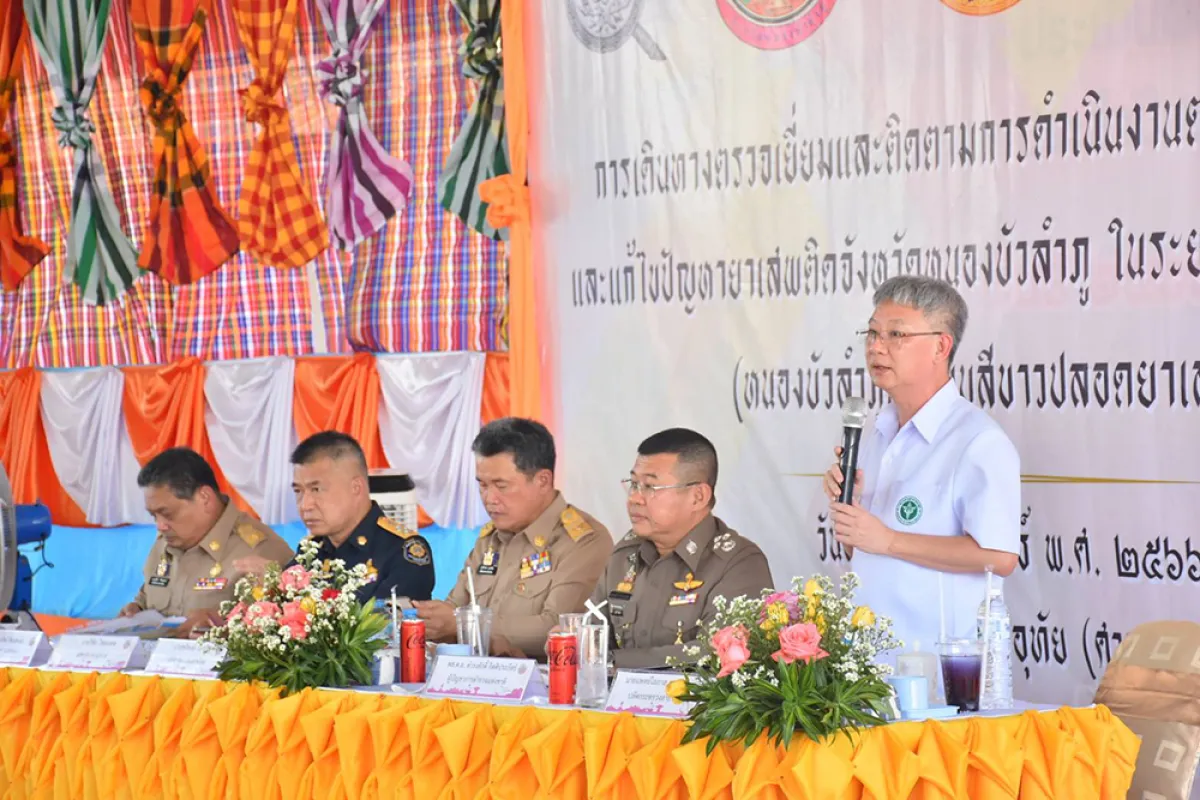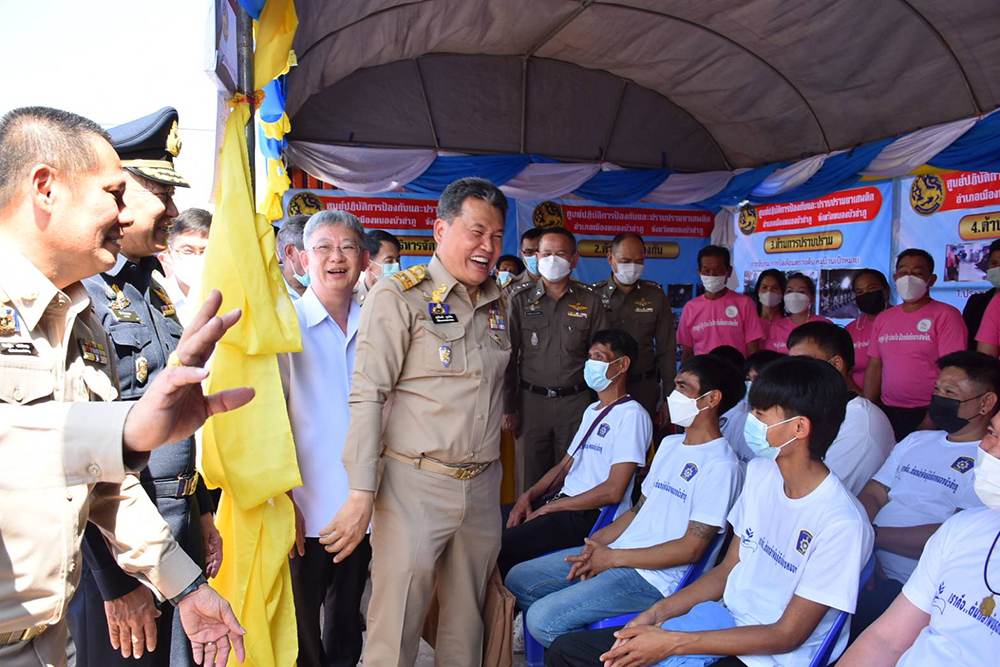
The government has prioritized drug-related issues by collaborating with relevant agencies, such as the Ministry of Interior, the Ministry of Public Health, the Royal Thai Police, and the Narcotics Control Board.
It has accelerated the implementation of seven issues in the Ministry of Public Health's departments:
1. Survey and register screening centers in all subdistricts;
2. Support and integrate local agencies for drug treatment, rehabilitation, and monitoring through community involvement (CBTx);
3. Inspect, survey, and register social rehabilitation centers;
4. Create psychiatric and drug treatment wards in hospitals and general hospitals;
5. In community hospitals, form a psychiatric and drug work group;
6. Support the operation of affiliated rehabilitation centers in the provinces for long-term drug rehab;
7. Register individuals who use the National Drug Addicts Treatment and Rehabilitation Information System (TAMC) both inside and outside the ministry. This is accomplished through the Mechanism of the Drug Addicts Treatment and Rehabilitation Committee.
There are currently 9,473 screening centers in subdistricts, 1,079 community-based drug treatment (CBTx) centers covering 659 communities, and 1,185 registered community social rehabilitation centers and dormitories. All provinces have already been covered by psychiatric and drug inpatients in hospitals, centers, and general hospitals.
“Nong Bua Lam Phu, the White Province Model” is a pilot project that includes measures for prevention, suppression, treatment, and social rehabilitation.
1. Solving problems with the concept of Change for Good by the program “Five Tigers Bringing Brothers and Sisters to Do Good Deeds” at the provincial, district, subdistrict, village, and community levels;
2. Create a “lion cabinet” via the QR code system distributed in every village, market, community, and government office in every district, where people can make complaints and report clues about wrongdoing;
3. A series of village headmen, village headmen, volunteers, sub-district health promoting hospitals, police, police volunteers, and heads/ committees worth $5,149 were organized to screen and care for psychiatric patients, with volunteers and village committees trained in patient observation care. Both have defenders and a Naka Phithak team to intervene immediately if a patient goes crazy;
4. Create a “Family folder” to collect information on factors for quitting drugs and assisting families, as well as promoting the role of villages/communities participating with 272 Mother of the Land Funds and 67 Sustainable Village Funds.
After three months of implementing the pilot project, it was discovered that it was able to achieve the goal of opening screening centers in all six hospitals, six community medical centers, and every local administrative organization (LOA), totaling 95 locations. There are 75 social rehabilitation centers spread across the provinces, districts, and municipalities. A psychiatric and drug ward was established at Nong Bua Lam Phu Hospital, and a psychiatric and drug work group was established in all community hospitals, and drug users in 67 model villages were thoroughly screened. Seven hundred and one drug addicts were discovered to be undergoing treatment and rehabilitation.
There is also a provincial drug action plan for mental health and caring for psychiatric patients at high risk of violence (SMI-V) with volunteers (Volunteers), community leaders, police, and others joining as support, with useful lessons learned for further expansion in other areas.

Source: Office of Information, Ministry of Public Health, Building 3, Office of the Permanent Secretary, Ministry of Public Health, Tiwanon Road, Talad Khwan Subdistrict, Mueang Nonthaburi District, Nonthaburi Province
Tel.: +66 2590 1000
Release date 7 February 2023